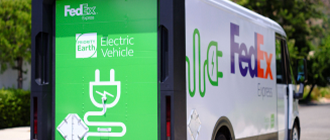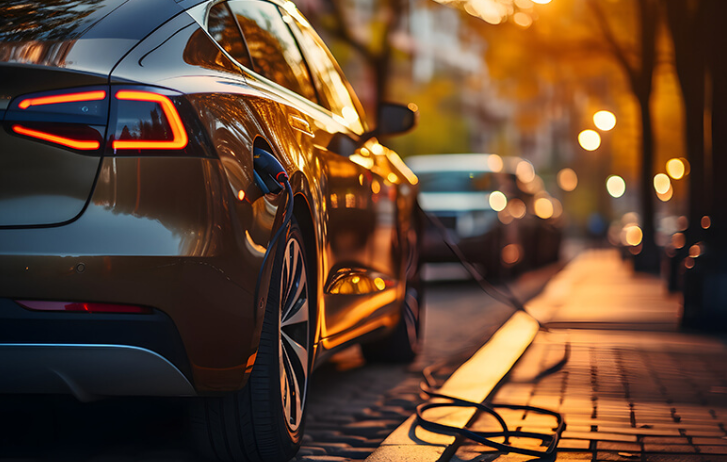
Yes, EVs Are Green – But They Can Be Greener
By Paul Lock | February 21, 2024
Paul Lock, the founder of Pan Asia Metals, shares his views on how lithium production, imports and exports are fuelling electric mobility and powering local economies.
From powering our smartphones to fueling tomorrow’s space adventures, lithium-ion batteries are the hidden force behind some of the most surprising technologies. These include electric vehicles. As the chairman of Pan Asia Metals, I’ve witnessed firsthand the transformative power of lithium in linking everyday technology with the EV revolution.
Today, EVs are rapidly gaining mainstream popularity. In Southeast Asia, aggressive policies toward EVs are reshaping the automotive landscape. Nations like Thailand, Indonesia, Japan, Malaysia, and Vietnam are striving to become automotive manufacturing hubs, challenging traditional, higher-cost Western production methods with their cost-effective approaches.
As the EV market continues to expand, it's driving an unprecedented demand for lithium, used to produce the rechargeable batteries that offer an alternative to high-polluting combustion engine cars. This surge has brought to the forefront challenges in scaling production.
Most notably, this has been stress-tested by the competition to produce lithium batteries at scale to further the development of EVs. Much of the world has watched with concern as China corners the market in lithium, dominating the global supply chain. It’s a complex push-pull for supply and demand, with China owning over half the world’s lithium refining capacity, but reliant on lithium imports from countries like Australia and Chile.
For countries like the U.S and Japan, who are vying for their share in the global EV market, securing allocation to this key resource is critical.
Making the lithium market more sustainable
But it's not just about meeting demand; it's about doing so responsibly. The industry faces the dual challenge of scaling up to meet the EV boom while navigating environmental and ethical concerns. This dilemma emphasizes the need for a delicate balance between technological advancement and ecological integrity.
In the grand scheme of things, EVs are still an important part of tackling the global climate crisis and reducing our reliance on oil. However, it matters how they are manufactured. The process of extracting the lithium needed to power EVs, for instance, can be more eco-friendly.
The lithium sector is actively exploring more sustainable mining practices, which I believe are not just a necessity, but an imperative. This includes advancements in recycling and embracing a circular economy approach, which are crucial for reducing the ecological footprint of lithium extraction and processing.
At Pan Asia Metals, our approach to lithium mining extends beyond economic considerations. It encompasses deep respect for the rights and histories of local communities. To me, community engagement is of utmost importance, and it’s why we’ve created initiatives that focus on providing education, supporting gender equality, improving facilities, and raising awareness about environmental conditions in local communities.
Driving towards a better society through innovation
Just as we work to continually improving the status quo, it encourages me to see other companies like FedEx taking even more active steps towards decarbonization, including exploring alternative green tech such as hydrogen-powered vehicles as part of FedEx Europe’s pickup and delivery fleet.
It’s clear that consumers today are incredibly preoccupied with sustainability, which may become even more of a priority among future generations of consumers such as Gen Alpha. Now’s the time for businesses – large and small – to join in the movement to prioritize sustainable and ethical practices in more rigorous ways.
***
For more tips and insights on running your business more sustainably, head here.
SHARE THIS STORY
- Generative AI: A New Frontier
- How To Make Freight Shipments Work For Your Small Business
- What’s So Dangerous About Coconuts? Your Guide To Dangerous Goods Logistics
- The Rise Of Intra-Asia Trade: Opportunities In The China-Southeast Asia Corridor
- How To Ship A Giant Panda
- Where Do Old Planes Go When They Retire?
Sign up now and save on your shipping rates!
Sign up now and earn discounts by shipping instantly with FedEx Ship ManagerTM at fedex.com.
Recommended For You

How EVs Are Driving Towards A More Sustainable Future
Driving towards our goal of achieving carbon neutral operations by 2040, we’ve been busy testing and deploying zero-emission electric vehicles.
Read More
How New Technologies Deliver Smarter Supply Chains
Emergent technologies like AI are making supply chains smarter, more resilient and agile. We dive deeper into their potential for FedEx and Asia SMEs.
Read More
5 Logistics Trends Driving A Smarter Supply Chain
FedEx is delivering both transportation and digital solutions, as it builds a smarter supply chain for everyone.
Read More
